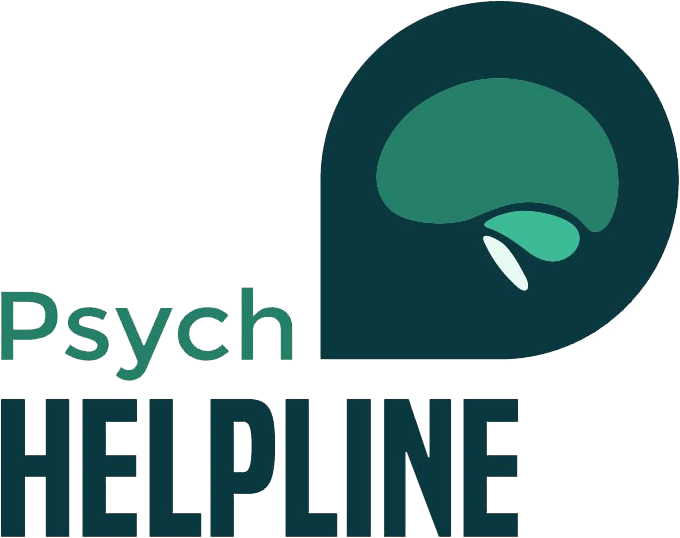Table of Contents

If you have a keen interest in design, ergonomics, customer reassurance then human factors psychology seems to be your calling. This is a particular area of Psychology, that seems to be growing at the fastest pace during current times. Corporations and big businesses rely on human factors psychology to achieve and maintain perfect results among the workforce and upcoming products. Meanwhile, the power of maximizing a customer’s comfort also makes HFPs a common target for the tech and retail industry. So let’s take a deep dive into this particular discipline of Psychology. Here’s all you need to know about human factors psychology before enrolling in your favorite grad school!
I. Human Factors Psychology: A Brief Introduction
This field of psychology revolves around maintaining user safety, improving performance, and creation of sustainable equipment. The word ergonomics is often used as a rotatory term in place of HFP on various occasions. Unlike most psychological disciplines; HFP isn’t that much involved in understanding psychological anomalies. On the contrary, it’s more centered around cognitive abilities, people’s interests, and their role in shaping products.
Here’s a simple example that can expose you to the responsibilities of a human factors psychologist. In an office among the most widely used machines is a printer. So, it would be the job of a human factors psychologist to ensure that this printer has been designed after taking human cognition and perception under consideration. It should be easy and safe to use. Furthermore, it shouldn’t take much effort to work because it would affect the people’s productivity levels at work. To ensure proper safety and productivity, a Human Factors Psychologist will carry out his/her research on that printer’s workability, interface. Then the conclusions drawn from this research will help an HFP while altering the ergonomics of that printer. As a result, the end product will be efficient, safe to use, and intuitive.
As a subfield, human factors psychology seems to encompass a lot. It might remind you of engineering, design, and human resources on various occasions. The silver lining here is that HFP utilizes the principles from all these earlier discussed fields. Thus if you’re equally interested in studying human cognition and product ergonomics; human factors psychology is your one-way ticket to the field of your interest. This interdisciplinary area of psychology also covers human-machine interaction to extreme limits. Have you ever wondered why certain mobile applications are much easier to use than some others? That’s because probably the former had a fair share of Human factors psychologists working to maintain on its front end.
Areas Of Specialization
As a Human Factors Psychologist you can specialize in the following areas;
- Usability: This particular area of human factors psychology is more interested in finding out whether credible the goal it was designed for. A Human factors psychologist specializing in this particular area takes product ergonomics under extreme consideration as well. This particular area of specialization emphasizes the fact that; during the creation of a product, future customers should be placed at the highest pedestal.
- Cognitive Ergonomics: As the name indicates this area of specialization intermingles both brain activity and product design. If the design of a product is too difficult to perceive, our cognitive abilities rarely achieve the desired result. Thus cognitive ergonomics assures that the services you’re paying for go hand in hand with your abilities to use that particular product. Additionally, people working in this field of Psychology also reexamine designs to make them fit for a large majority of people.
- User Experience Engineering: This area of specialization comes much more into play, especially during recent times. It’s relevant to the digital products we use in everyday life including websites and mobile applications. User experience engineering caters to users by designing apps and websites that are much more comprehensible. The purpose behind the application of various psychological principles related to HFP is to ensure that the customer’s enjoying a good experience. Psychologists specializing in this field of interest alter and analyze every little detail such as; the interface of a website, logo, fonts, flow, buttons, etc.
- Error Prevention: Error prevention as the name indicates is more involved in avoiding the chances of mistakes in advance. The healthcare system heavily counts on this field of specialization. Thus, this particular area of HFP deals with the investigation of health care apparatus or anything that could pose dangers to human life during medical procedures. Some other high-risk professional fields that rely on this particular section of Human factors psychology are; aviation and industries employing heavy machinery or life-threatening chemicals. Back during World War 2, HFP was said to be the basis for improvement and development among airplanes used in warfare.

II. Human Factors Psychology: Why Should You Care?
With passing time, everyone’s started to understand that they deserve the best from life. Decades ago simple products or pieces of machinery could get the job done. Nowadays people give extra importance to their comfort and choices. Needless to say with turning times this demand for comfort and choice is going to continue arising. As stated earlier human factors psychology is heavily associated with shaping things that could suit safety measures and comfort levels equally.
Another common aspect usually associated with human factors psychology is the assurance of safety. People who usually operate heavy machinery or work in industries involving hazardous stuff, desire things that could pose the least amount of danger or stress. So, by becoming a part of this process you are offering your services to a large majority that need them the most. Additionally, you are also stepping your foot into an ever-green career trajectory in the world of psychology.
III. Human Factors Psychology: Degree & Education
Like most professional fields, your salary depends on the country you’re residing in and the place you’re employed at. According to a 2020 survey, on average, human factors psychologists earn around 90k a year. If you’re looking for a position as an entry-level Human Factors Psychology research assistant then a bachelor’s degree in psychology is an absolute necessity. Furthermore, through your curriculum, during this 4-year long bachelor’s program, you’ll be introduced to relevant subjects like;
- Abnormal Behavior
- History of Psychology
- Systems of Psychology
- Psychological statistics
To get enrolled in a master’s or doctorate program, you’ll require a bachelor’s degree. This will in turn raise your status from an entry-level assistant. An important thing to note here is that to earn the title of a psychologist you’ll have to pass a license examination. A fair share of other countries has some other requirements, but that totally depends on your locality. Your master’s program will cover topics that can serve as a basis for your upcoming areas of specialization. These topics may include;
- Advanced statistics
- Cognitive Behavior
- Engineering Psychology
- Human-technology interaction
To further expand the horizons of your expertise, you can also pique your interest in a doctorate program. Some popular areas of coverage and research in this doctorate program may include an excessive focus on judgmental processes, quantitative methods, computer science, etc. A doctorate degree in the field of human factors psychology usually lasts 7-8 years. During the first 4-5 years you’ll be dedicating your time to training. Meanwhile, the next 1-2 years are dedicated to post-doctoral work.

IV. Human Factors Psychology: Future Career Trajectories
- Humans factors Psychology revolves around the maintenance of productivity among businesses and the assurance of comfort among customers. Thus, there’s a lot to explore in corporations that require desired results from their workforce. Furthermore, as a human factors psychologist, you can work in HR-related endeavors or as a part of the management to assure high productivity rates.
- As discussed earlier, aviation as a field is heavily reliant on the principles of HFP. Thus you can also explore career options in aviation. Human factors psychologists usually get appointed by airlines and pilot training institutions to reduce human error. Among their tasks is the responsibility to ensure that the design of the cockpit is pretty intuitive. Consequently, the pilots will have better chances of carrying out safe flights without any technical disturbances. This act of redesigning leads to the creation of a consumer safe product and better service.
- Another important role you can play in aviation is by screening the employment and interviewing process for newly hired pilots. This is exactly where your training in error prevention again comes into play.
- Federal and local government agencies are always on the lookout for human factors psychologists for their enrollment in public sectors like; field of telecommunication, nuclear research, aerospace programs. Furthermore, private corporations that have ownership of areas discussed earlier also need HFPs for error reduction, screening, and workplace rejuvenation.
- Even if any professional fields don’t seem to hit the point, you can always immerse yourself in the field of research based on your doctorate degree.
Final Words
Machines are here to say and today’s consumer is well aware of his/her rights as a consumer. This goes on to show that, unlike most academic or professional fields, human factors psychology is sustainable. If you’re still in the process of enrolling in an undergrad program, HFP offers you lots of possibilities. This psychological discipline intermingles design, customer care, error prevention, ergonomics, and cognition in an extremely unique way. Thus, it’s an equally rewarding and challenging professional endeavor. So, what do you think? Now, that you’re familiar with all the ifs and buts of human factors psychology, do you feel like it’s the perfect field for you?
FAQs
What is the job of a human factors psychologist?
Human factors psychologists focus on studying human traits, the art of decision making, as well as human-machine interactions. They conduct research based on the earlier discussed basis and then lay down strategies to improve productivity, safety, consumer satisfaction, and product performance.
What do I have to do to become a human factors psychologist?
Enrolling and completing a bachelor’s program in psychology only leads to entry-level placements as an HFP’s assistant. In order to become a human factors psychologist, you’ll need a master’s degree in the relevant program. If your target is to conduct further research or become a part of academia, a Doctorate degree is always part of the discourse.
Why is human factors psychology so important?
The principles of human factors psychology are important to maintain consumer safety. Of course, if there are airplanes involved, there has to be someone who can ensure safe flights by focusing on the training process and plane ergonomics. Similarly, in big corporations, the presence of high productivity rates and a good workplace environment can make a huge change. If the machinery involved in an industry isn’t safe enough, that industry suffers at the hand of less workforce and increased mortality rates. Thus it’s almost like a do or die game if the management of a particular company is or isn’t hiring the services of a human factors psychologist.
Which factors determine that a product is for usage according to human factors psychology?
The design of a product tops the list of these factors. If the design of a product is easy to perceive, consumers will automatically opt for it. There are various aspects involved here including; the shape, color, or font used in that product’s design. The second most important factor in this discussion is the presence and absence of safety and errors. Human factors psychology investigates any dangers caused by a single item and takes it into great consideration. If an item or tool has both of these qualities it’s probably not going to cause any errors shortly.






